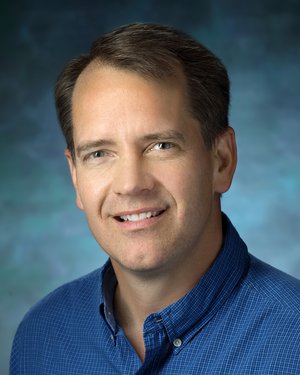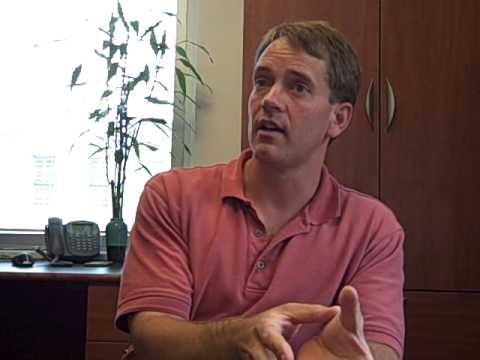Research Summary
Uncovering the Fundamentals of Cell Shape Control in Normal and Disease Scenarios
My research goals are to understand how cells interface biochemistry and mechanics to perform dynamic cell shape change during processes such as cell division, cell motility, and cellular morphogenesis. I am also interested in how cells sense and respond to mechanical inputs, which help direct their behavior. This process of mechanosensing is fundamental to a broad array of healthy physiology, such as hearing, blood pressure regulation, bone remodeling, durotaxis, and stem cell decisions. We have found that cell division (cytokinesis) naturally encompasses all these cell behaviors with the added value that cytokinesis is of fundamental medical importance as a source of novel anti-cancer drug targets. The social amoeba Dictyostelium discoideum has been our principle model of choice because it undergoes cytokinesis and cell motility in a manner that is highly analogous to mammalian cells and is highly tractable for genetic through engineering approaches. In our research, we employ a broad range of conceptually distinct research strategies, ranging from genetics, biochemistry and advanced quantitative microscopy to engineering and computational biology. To accomplish this, I have recruited a diverse group of researchers in my lab whose expertise span these disciplines and have trained 78 people in my lab to date. My own training was in developmental genetics with Lynn Cooley at Yale and biochemistry with Jim Spudich at Stanford. We collaborate closely with computational biologist Pablo Iglesias (JHU Electrical and Computer Engineering). We also work with Ron Rock at University of Chicago to apply single molecule methods to study the force-dependent assembly and function of proteins involved in cellular mechanosensing.
My lab has also branched out considerably to apply our conceptual approaches to a diversity of other cell shape change and cellular mechanosensing processes through collaboration with several investigators. With Janice Evans (formerly, JHU School of Public Health), we examined the mechanics of mammalian oocyte maturation, meiotic cell division, block to polyspermy, and oocyte aging. With Mike Overholtzer (Sloan Kettering), we studied the mechanics of entosis, the process by which one cell engulfs another and which is common in many solid tumors. With Elizabeth Chen (UT Southwestern), we examined the biochemical basis of the cell mechanics that guide and control of myoblast fusion during muscle development. We are also working with Ramana Sidhaye to study the molecular mechanical basis for chronic obstructive pulmonary disease. We also seek to engineer cells to be able to perform specialized tasks. Towards this end, we are working with Pablo Iglesias, Peter Devreotes (JHU Cell Biology), Takanari Inoue (JHU Cell Biology), and Tamara O’Connor (JHU Biological Chemistry) to engineer cells with enhance pathogen hunting ability.
My lab has been working with Robert Anders (JHU Pathology) to study the mechanics of liver and pancreatic cancer progression. Now we have built an interdisciplinary team to use the mechanobiology of pancreatic cancer progression to guide the discovery of new therapeutic strategies. This team includes Robert Anders, Pablo Iglesias, Elizabeth Jaffee (JHU Oncology), and Caren Freel Meyers (JHU Pharmacology).
Finally, we utilize our foundational science to discover, characterize, and develop small molecules that target the mechanobiology of the cell in order to guide cell behavior. This includes high throughput screening using live-cell assays. Our first compound has advanced to the stage of having been tested in animal models of metastatic pancreatic and colorectal cancer.
Lab
You can see information about Dr. Robinson's lab here
Lab Website: Robinson Lab
Selected Publications
View all on PubMed
Kliment CR, Nguyen JMK, Kaltreider MJ, Lu YW, Claypool SM, Radder JE, Sciurba FC, Zhang Y, Gregory AD, Iglesias PA, Sidhaye VK, Robinson DN*. Adenine Nucleotide Translocase regulates airway epithelial metabolism, surface hydration, and ciliary function. J. Cell Sci. 2021;134(4): jcs257162
Surcel A, Schiffhauer ES, Thomas DG, Zhu Q, DiNapoli K, Herbig M, Otto O, West-Foyle H, Jacobi A, Kräter M, Plak K, Guck J, Jaffee EM, Iglesias PA, Anders RA, Robinson DN*. Targeting mechanoresponsive proteins in pancreatic cancer: 4-hydroxyacetophenone blocks dissemination and invasion by activating MYH14. Cancer Res. 2019; 79: 4665-4678
Crews DC, Wilson KL, Sohn J, Kabacoff CM, Poynton SL, Murphy LR, Bolz J, Wolfe A, White PT, Will C, Collins C, Gauda E, Robinson DN*. Helping scholars overcome socioeconomic barriers to medical and biomedical careers: Creating a pipeline initiative. Teach. Learn. Med. 2020; 32(4): 422-433. DOI: 10.1080/10401334.2020.1729161
Surcel A, Schiffhauer ES, Thomas DG, Zhu Q, DiNapoli K, Herbig M, Otto O, West-Foyle H, Jacobi A, Kräter M, Plak K, Guck J, Jaffee EM, Iglesias PA, Anders RA, Robinson DN*. Targeting mechanoresponsive proteins in pancreatic cancer: 4-hydroxyacetophenone blocks dissemination and invasion by activating MYH14. Cancer Res. 2019; 79: 4665-4678
Luo T, Mohan K, Iglesias PA, Robinson DN*. Molecular mechanisms of cellular mechanosensing. Nat. Mater. 2013; 12: 1064-1071
Patents
Treating and Preventing Diseases by Modulating Cell Mechanics
Patent # US Patent: US10787410B2 |



Patient Ratings & Comments
The Patient Rating score is an average of all responses to physician related questions on the national CG-CAHPS Medical Practice patient experience survey through Press Ganey. Responses are measured on a scale of 1 to 5, with 5 being the best score. Comments are also gathered from our CG-CAHPS Medical Practice Survey through Press Ganey and displayed in their entirety. Patients are de-identified for confidentiality and patient privacy.